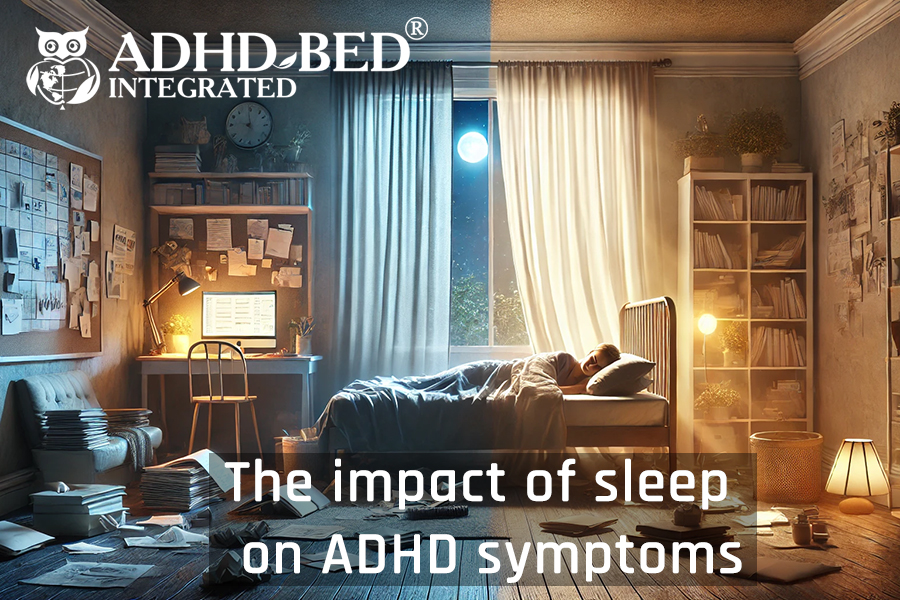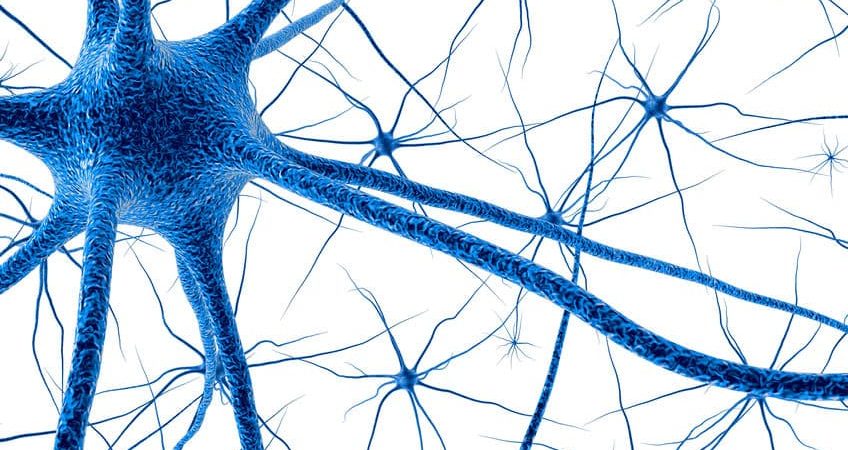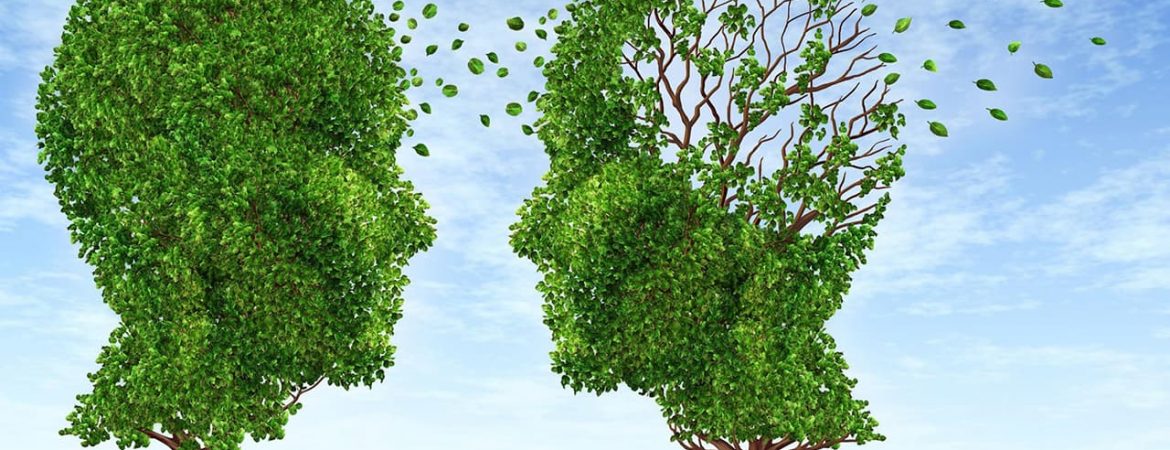Table of Contents
I. The Connection Between Sleep and ADHD Symptoms
Individuals with ADHD often face challenges when it comes to falling asleep, maintaining a restful night’s sleep, and waking up refreshed. Frequently, the restlessness associated with ADHD disrupts sleep patterns, thereby affecting both their treatment progress and overall well-being. Typically, adults require around seven hours of sleep, while children should aim for the recommended 10 to 12 hours to support their growing bodies. Falling short of these crucial sleep hours can increase the risk of developing chronic conditions such as heart disease, diabetes, and depression. Furthermore, inadequate sleep can exacerbate ADHD symptoms, compounding the difficulties faced by those with the condition.
A. Sleep deprivation and its impact on ADHD symptoms
The majority of research involving typically developing children and those with ADHD has indicated that sleep deprivation can lead to deficits in neurobehavioral functioning that mimic or exacerbate ADHD symptoms. There were provided studies about the impact of extended sleep deprivation on the neurobehavioral performance of both people with and without ADHD. In both studies, the continuous performance task, a neurobehavioral assessment that assesses sustained attention and behavioral inhibition—frequently used in evaluating inattention and impulsivity in persons with ADHD—was significantly affected by sleep deprivation.
B. Role of circadian rhythms in ADHD and sleep
Circadian rhythms refer to the regular 24-hour cycles of changes that take place in the body, brain, and behavior. These natural processes affect a wide range of living organisms, including animals, plants, and bacteria, and are primarily influenced by the alternation of light and darkness in the environment.
People who are dealing with ADHD, often exhibit increased alertness during the evening hours. This unique sleep pattern can pose challenges when it comes to adhering to appointments for work or studying. The sleep issues related to circadian rhythms in these cases may stem from factors like smaller pineal glands, disturbances in the body’s internal clock, and delayed melatonin production in individuals with ADHD.
C. The relationship between medication and sleep quality in ADHD patients
The immediate-release and extended-release versions of stimulants containing methylphenidate and amphetamine are the most widely used and extensively studied treatments for ADHD. Within the array of stimulant formulations, Lisdexamphetamine and the methylphenidate patch stand out as the longest-acting amphetamine and methylphenidate options, respectively. They exhibit effects on ADHD symptoms that can persist for over ten hours.
Among the common side effects associated with stimulant medications, insomnia or a delayed sleep onset of more than half an hour is one of the most frequently reported.
D. The impact of sleep disorders on ADHD symptoms
Hyperactivity, a primary symptom of ADHD, may lead to extended sleep onset latency, increased nighttime awakenings, and diminished sleep quality. Conversely, sleep disturbances can also hinder daytime attention and often coincide with these symptoms. Consequently, these two conditions can mutually exacerbate each other.
II. Strategies to Improve Sleep Quality in ADHD Patients
To enhance the sleep quality, people with ADHD should try these tips:
Avoid unnecessary daytime naps, go to bed and get up at one time every day.
Reduce the consumption of alcohol, caffeine, fat food and sweets in the hours leading up to bedtime.
Don’t take any stimulants too late, consult the doctor about the time when to consume the prescribed medicine, if there is any.
Refrain from using computers, smartphones, watching tv one hour before going to bed.
Avoid engaging in mentally demanding tasks and stimulating activities in the evening.
A. Establishing a consistent sleep routine
Maintain a consistent sleep schedule by going to bed and waking up at the same time every day. Your body thrives on routines, so resist the urge to sleep in on weekends or stay up late. By sticking to your schedule, your brain will find it easier to recognize when it’s time to sleep.
For people with ADHD, routines hold special significance as they help to anticipate what comes next and provide a sense of control over their day. Create a visual calendar the bedtime rituals, including activities like bathing, teeth brushing, and turning off the lights for easy reference.
B. Creating a sleep-conducive environment
Creating an optimal sleep environment involves a few key steps:
Maintain a comfortably cool room temperature, not too cold and not too hot.
Ensure darkness in the sleeping area:
Put on windows heavy, lined drapes or room-darkening shades, and securely close the drapes to block out incoming light.
Conceal or remove any clocks, watches, computers, cell phones, or televisions with white- or blue-lit displays, turn off literally all lights in the room or put on an eye mask for uninterrupted sleep.
Minimize noise disruptions:
Turn off tv, radio, music.
Use earplugs to reduce noise disturbances from outside.
Silence your cell phone and disable unnecessary alerts.
Reserve the bedroom for sleep only, avoiding activities like work, reading, or watching TV in this space.
C. Promoting relaxation and reducing stimulation before bedtime to improve ADHD symptoms
Relaxation techniques are vital tools for reducing daily stress. Consistently practicing these techniques can significantly enhance your mood and reduce stress levels.
Preparing for relaxation is a simple yet essential step. It’s crucial because it enables you to effectively engage in these techniques, maximizing their overall benefits.
Experiment with different approaches to find the one that suits you best. There are various methods for managing stress, and the time it takes to become proficient in a technique may vary. Choose strategies that align with your needs and schedule, try different relaxation practices, whether it’s progressive muscle relaxation, deep breathing, meditation, visualization, or other techniques.
D. Exercise and its role in improving sleep quality in lives of people with ADHD
For adults, in particular, moderate to intense exercise can improve sleep quality by speeding up the process of falling asleep and decreasing the amount of time spent awake in bed at night. The inability to sleep or sleep well is currently a widespread health concern in modern society. The physiological role of physical exercises for good quality sleep when the body can regulate appropriate hormonal and metabolic processes is very important. There are a lot of researches demonstrating the benefits of physical activity as a part of treatment for people with ADHD.
III. Strategies to Reduce ADHD Symptoms Through Sleep
Sleep is influenced by neurotransmitters that are also linked to ADHD. GABA, for instance, plays a crucial role in inhibiting brain activity. People with ADHD often have lower levels of GABA, which can lead to difficulties in falling asleep. Another common issue among individuals with ADHD is Delayed Sleep Phase Syndrome (DSPS), a disruption in their circadian rhythm. This can result in a delay in the release of melatonin, a hormone associated with sleep.
ADHD symptoms can persist throughout the day and create unfavorable conditions for sleep at night. Despite this, many individuals with ADHD find that they are more focused and alert in the late hours. Additionally, stimulant medications can interfere with sleep for some.
Many adults with ADHD carry a genetic variant known as catechol-O-methyltransferase (COMT), which suppresses an enzyme involved in dopamine metabolism. This genetic trait can make it challenging for the body to regulate sleep.
A. Sleep as a tool for improving attention and cognitive function
Most learning heavily relies on the need for attention and concentration, both of which receive a significant boost from obtaining a sufficient amount of high-quality sleep. In addition to these benefits, sleep also plays a pivotal role in supporting various other cognitive processes, including memory, problem-solving, creativity, emotional processing, and judgment. It is crucial to understand that sleep is an indispensable component for the successful functioning of our cognitive abilities. Even a slight reduction in sleep duration, by just a few hours, can exert a detrimental impact on several cognitive functions, encompassing learning, memory retention, sustained attention, language comprehension, logical reasoning, and effective decision-making. Beyond simply maintaining normal cognitive function, sleep has the remarkable potential to elevate performance levels beyond what is typically expected.
B. Incorporating sleep into ADHD treatment plans
Individuals with adult ADHD often encounter challenges in effectively pursuing their goals, making it a struggle to establish new sleep-promoting routines. It’s essential to consider these recommendations within the context of addressing difficulties related to planning, task-switching, and organization that frequently accompany the core features of ADHD. Further research may shed light on the most effective subjective and objective assessment techniques. Cognitive behavioral techniques and adjustments to one’s environment can be low-risk strategies to promote the adoption of healthier sleep habits and regular sleep-wake patterns. When it comes to treating adult ADHD populations, prioritizing pharmacotherapies and over-the-counter medications that have minimal impact on sleep while optimizing daytime performance is crucial. Clinicians may find that employing systematic, engaging, and structured sequential evaluations can effectively assist patients in regulating their sleep patterns and holding them accountable.
IV. Conclusion about how sleep impacts on ADHD symptoms
For individuals experiencing a combination of hyperactive-impulsive and inattentive ADHD, their sleep quality tends to be compromised, often leading to later bedtimes. Numerous ADHD symptoms bear resemblance to those stemming from sleep deprivation. Beyond these, challenges with sleep in adults with ADHD can result in daytime forgetfulness and struggles with maintaining focus. This can be much more improved with a good time-management, organizing a bed routine and keeping simple rules that will improve the quality of sleep, and overall wellbeing.
References
Krahn LE. Psychiatric disorders associated with disturbed sleep. Semin Neurol. 2005;25(1):90–96.
Gruber R, Wiebe S, Montecalvo L, Brunetti B, Amsel R, Carrier J. Impact of sleep restriction on neurobehavioral functioning of children with attention deficit hyperactivity disorder. Sleep. 2011;34(3):315–323.
Van der Heijden KB, Smits MG, Someren EJWV, Boudewijn Gunning W. Idiopathic chronic sleep onset insomnia in attention-deficit/hyperactivity disorder: a circadian rhythm sleep disorder. Chronobiol Int. 2005;22(3):559–570.
Danielle Pacheco, Sleep Foundation. ADHD and Sleep. [Electronical resource] – Available at: https://www.sleepfoundation.org/mental-health/adhd-and-sleep Updated August 8, 2023
Children and Adults with Attention-Deficit/Hyperactivity Disorder. (n.d.). ADHD and sleep disorders, [Electronical resource] – Available at: https://chadd.org/about-adhd/adhd-and-sleep-disorders/ , retrieved November 17, 2022
Sedky, K., Bennett, D. S., & Carvalho, K. S. . Attention deficit hyperactivity disorder and sleep disordered breathing in pediatric populations: a meta-analysis. Sleep medicine reviews, 18(4), 349–356. [Electronical resource] – Available at: https://pubmed.ncbi.nlm.nih.gov/24581717/ , 2014
Cassoff J., Wiebe S. T., & Gruber R. Sleep patterns and the risk for ADHD: A review. Nature & Science of Sleep. 4: 73-80. [Electronical resource] – Available at: https://pubmed.ncbi.nlm.nih.gov/23620680/ , 2012
Centers for Disease Control and Prevention. Personal Strategies to Promote Good Sleep and Alertness. [Electronical resource] – Available at: https://www.cdc.gov/niosh/emres/longhourstraining/sleepmedicine.html , 2023



